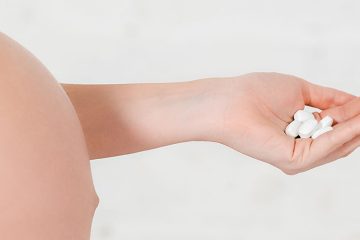5 Common Skin Allergy Triggers (And How to Avoid Them)

Let’s face it: good skin health is of the utmost importance when it comes to our overall vitality. Our skin is constantly working to prevent external toxins and bacteria from entering and harming our immune system, while also maintaining a healthy level of hydration within to keep our organs functioning properly. In this article, you will find about five common skin allergy triggers and how you can avoid them.
So, when an allergic reaction pops up on the surface, we’re usually concerned – not just because of the inevitable itch and irritation that’s sure to follow, but also because we’re often unsure of what brought about the reaction in the first place, and what kind of damage it’s doing underneath.
The truth is that there are a number of things that can make skin allergy triggers the tell-tale discoloration, itchiness and inflammation that we experience in the midst of a bad allergy flare-up. Finding the root cause of the reaction is key to maintaining your skin’s health for the long term – here are common skin allergy triggers.
-
Table of Contents
Jewelry
Whether it’s your favorite necklace or your go-to belt buckle, jewelry is often a major trigger for allergic contact dermatitis, which is a fancy term for your body’s reaction to foreign haptens that slowly irritate your immune system and appear on your skin over time. Nickel is the most common ingredient that can cause this type of irritation, so watch out for any signs of discomfort from bracelets, necklaces, and costume jewelry.
How to avoid: It’s pretty straightforward; contact with a nickel-containing piece of jewelry will typically result in a discolored, inflamed rash at the site of contact. This makes it fairly simple to deduce what’s causing the problem, and removing the item will clear up the rash within a few days.
-
Fragrance
Those with skin conditions like eczema or psoriasis may already be familiar with this one, as it’s a well-known trigger for inflammation in sensitive skin. Fragrance may add a pleasant scent to your personal care products, but what goes on underneath your skin’s surface is a different story.
Because fragrance is a volatile chemical, it’s natural properties can be too harsh even on non-sensitive skin (you just won’t see it as clearly as someone with a pre-existing condition.) It’s commonly found in not just perfumes, but lotions, cleansers, and most other products you’re probably using everyday in your skincare ritual. Most people begin to notice redness, tightness, and even peeling after prolonged exposure to fragrance-containing products can make skin allergy triggers, so if you’re curious as to why your skin looks worse rather than better, this may be the case.
How to avoid: Fragrance-free products are readily available and, more often than not, easier on your skin. While not all chemicals are bad, fragrance is a particularly harsh one, and even without signs of irritation it’s best to avoid when you can.
-
Laundry Detergent
Even if you’ve made the switch to fragrance-free formulas in your skincare ritual, there are other ingredients in your most common household product, laundry detergent, that can be damaging to your complexion: parabens, preservatives, and dyes. In severe cases, allergic contact dermatitis can result in blisters, dry/cracked skin and even burning, and since you’re in constant contact with your clothing, this is an easy culprit.
Surfactants, or surface-acting agents, are the reason that your clothes come out so fresh and clean after a wash – their main purpose is to lift the dirt and grime from between the fabric and wash them away. However, these surfactants also contribute to irritation over time, much like nickel; it takes several interactions for the irritation to occur, but once it settles in even a small amount can make skin allergy triggersa reaction.
How to avoid: Not only is choosing a fragrance-free formula important, but dye-free laundry detergent is also key, and should help clear up any reactions you may be experiencing. You should also skip the fabric softener to cut down on additional chemicals, and rinse your clothing twice in the wash to help get rid of any other allergens.
-
Shampoo & Body Wash
Our everyday shampoos and body washes usually contain a medley of ingredients, some being harmful and some not. The most damaging preservatives found in these products are isothiazolinones, cocamidopropyl betaine, phenoxyethanol, methylchloroisothiazolinone, methylisothiazolinone, dehydroacetic acid, and chlorphenesin. The main purpose of these ingredients is to improve shelf life and thicken the formula, but what they do to your skin is much worse. You may notice rashy patches of skin all over your body, and a dry, flaky scalp.
How to avoid: Yes, it’s a pain to read a laundry list of ingredients when you just want to grab and go, but taking extra time to ensure there are as few preservatives as possible in your shampoos and body washes will potentially spare you from skin irritation down the road. Brands like Cerave and Cetaphil offer low-impact washes that are less likely to trigger a reaction, and they’re also great for relieving symptoms if you’re in the midst of a flare-up.
-
Essential Oil
The term “natural” gets tossed around quite a bit as an antidote to traditional skincare products, but don’t let the greenwashing fool you: even natural ingredients can cause an allergic reaction if you’re not careful.
Specifically, tea tree oil is a popular alternative to chemical cleansing agents, but it can still trigger an allergic reaction if it’s used improperly. Even in small doses, it can be too irritating for sensitive skin, so be cautious if you’re looking to make a switch. Other irritating oils are peppermint, ylang-ylang, cinnamon, and clove oils, all of which can result in dry, cracked and flaky skin.
How to avoid: If you want to experiment with alternative fragrance using essential oils, always dilute and use sparingly. Monitor reactions closely and stop all use of products containing essential oils if problems persist. Remember: natural doesn’t always mean better, and you should still exercise caution whenever fragrance of any kind is involved.
A word on immunity
In the event that you’re suffering from severe allergies, you may be curious how to build immunity against common allergens. So far, the best way to do this is through a doctor, who will inject you with small doses of the substance you’re allergic to. Over time, they will gradually increase the dosage, which allows your immune system time to slowly desensitize itself to the allergen for long-term relief.
However, even though this method is effective, it’s typically reserved for those who suffer from allergies often, and the prevention tips above are still the easiest way to lessen the likelihood of a reaction. If you’re unsure that what you’re experiencing on your skin is an allergic reaction at all, consult your doctor to make a diagnosis and discuss potential treatments.








